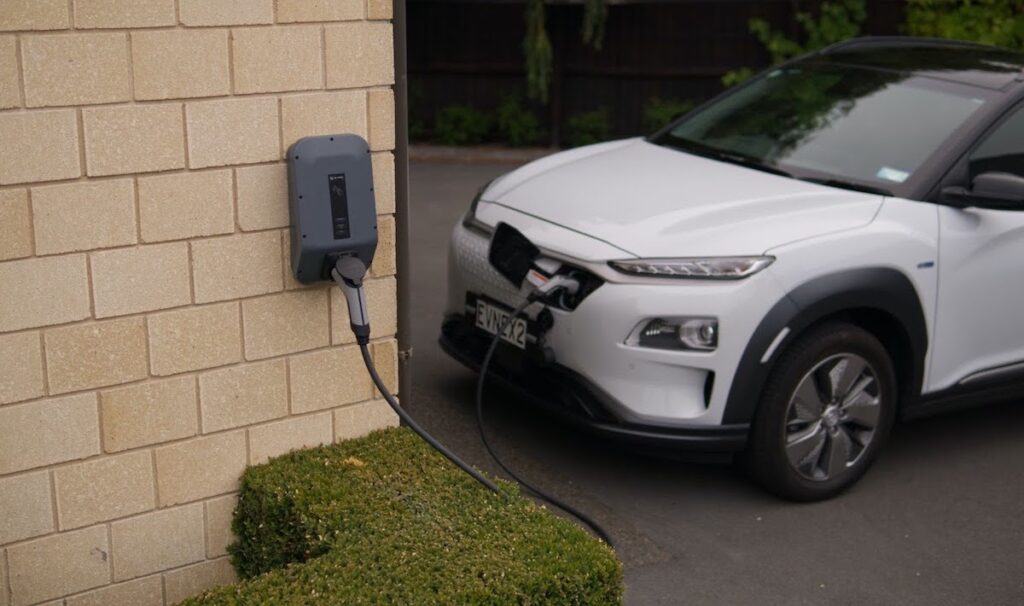
If you’ve thought about buying an electric car, then you’ve probably wondered how much it costs to charge an electric car in different situations. When you own an electric car you will likely need to charge at home, at nearby charging stations, and rapidly when traveling.
The cost of each of these charging situations will be different depending on the cost of electricity, the type of charging, the charging company, and even the charger’s location. In this article, we will tackle the multiple options and costs of charging your EV so you know what to expect.
Charging at Home: Aim for Non-Peak Charge Times
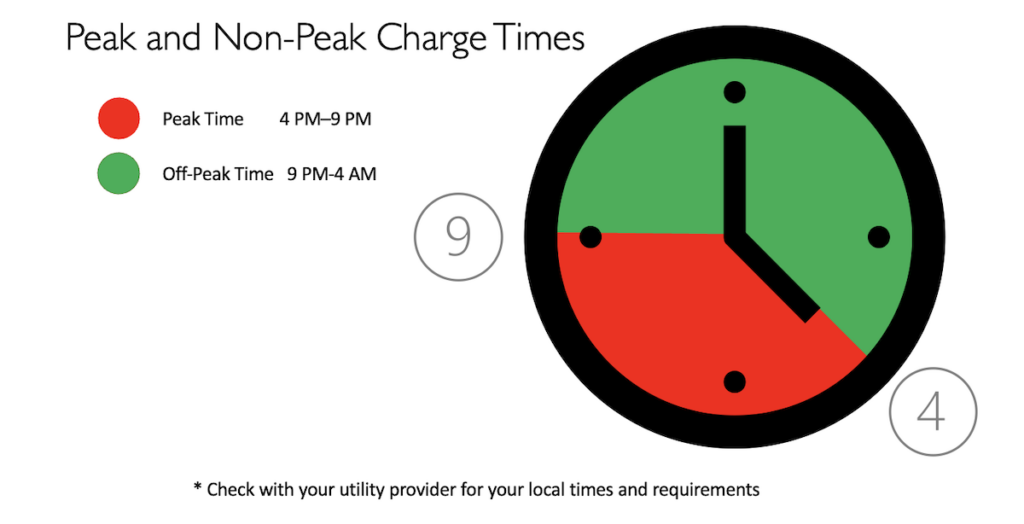
The most affordable place to charge your EV will likely always be your home. This is because residential electrical rates are often regulated so that electricity remains affordable. Many areas also offer up to 30% off their rates for “off-peak” hours (before 4 pm and after 9 pm). To receive the lower rate, the utility company may require you to purchase a special charger with both Wi-Fi connectivity and the ability to schedule a charge.
The cost of electricity differs by state, city, and even utility companies. On average, Americans pay about $.16 kWh for electricity. Hawaii is the most expensive at $.40, California second at $.25, and North Dakota is the lowest at $.10.
Potential Costs of Charging Your Electric Car At Home
| Car | Tesla Model 3 | Kia Niro EV | Hyundai Ioniq 5 |
| kWh Battery | 54 kWh | 68 kWh | 58 kWh |
| Range | 267 Miles | 239 Miles | 303 Miles |
| Peak Hours* | $8.64 | $10.88 | $9.28 |
| Off-Peak Hours | $6.22 | $7.62 | $6.50 |
* US average of $.16 kWh Statista.com
How Much Does It Cost to Charge an Electric Car? A Simple Calculation
Begin by looking up the battery size of the model of electric car you are interested in. In the chart above you can see the different sizes of batteries in each vehicle. Some manufacturers offer the option for larger batteries in the same vehicle. Larger batteries give the vehicle a longer range. So, be sure you are selecting the correct-sized battery for your calculation.
Next, check the cost of electricity from your utility company. The cost is measured in kWh (kilowatt-hours,) and can be found on your home’s utility bill. To find the total cost to charge your battery from empty to full, multiply the battery size by the cost of kWh charged by your utility company. In the example above, you can see it costs $8.64 to charge a Tesla Model 3 with a 54 kWh battery and $10.88 to charge a Kia Niro EV with a 68 kWh Battery.
Level 1 vs Level 2 Home Charging Costs
When you are charging from home you are paying the same cost per kWh whether you’re using a Level 1 charger or a Level 2 Charger. Therefore, it costs the same to charge with either charger. The only difference is the time it takes to charge.
Home Electric Bill Increase
Of course, if you buy an electric car and charge it from home you will surely see an increase in your home’s utility bill. But the increase isn’t as much as you think. With a lot of free charging options, you won’t always be charging at home. So, the average EV owner can expect an increase of $30-$45 a month on their energy bill. Likely considerably less than what you are currently paying for gas.
Charge Away From Home at Free Charging Stations
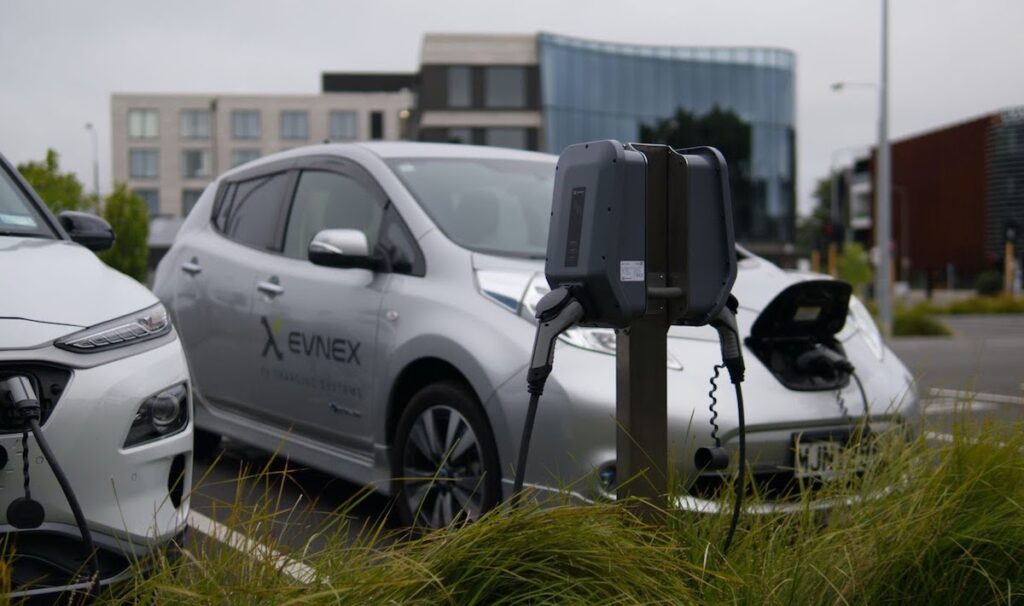
If you are outstanding at planning your day, you may be able to top off your electric car for free at work or while running your errands. In an effort to attract more customers and to keep them shopping longer, many stores and services offer free Level 1 charging for their patrons. Plugshare.com has an easy-to-use search feature to find free charging locations.
Level 1 Chargers won’t charge an EV to 50% in an hour, but you may be able to gain 10 miles of range while you’re having lunch with a friend.
Caltrans (California’s Department of Transportation) has installed sixteen, free-to-use, Level 2 Chargers and six, Level 3 Rapid Chargers throughout the Central Valley highway system. Their goal is to make charging more accessible and to advance the EV movement. While California is the forerunner for the advancement of electric cars in the US, it only makes sense that other states will soon follow.
Charging On-the-Go: The Cost at Public Charging Stations
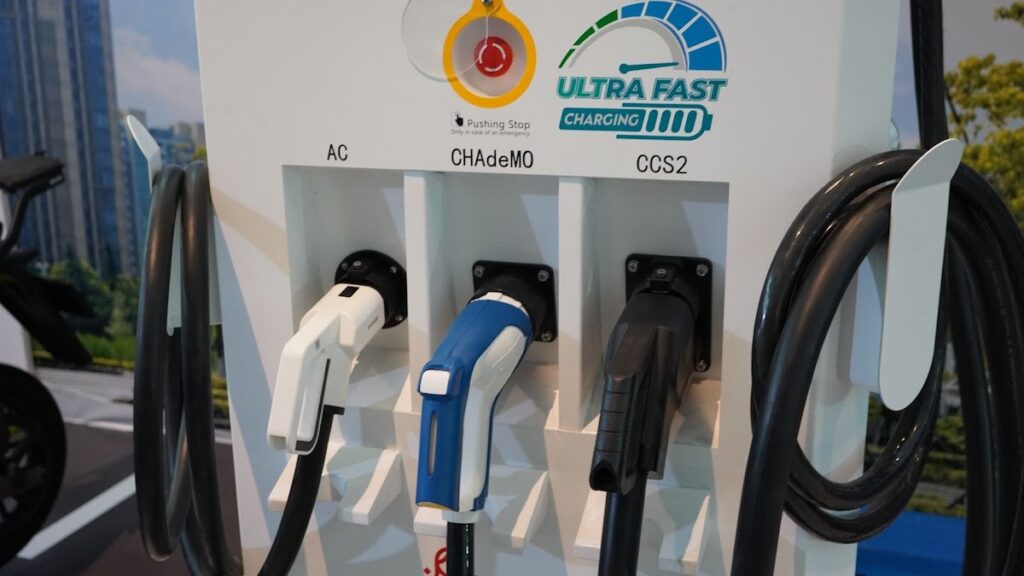
Electric car sales soared 41% in 2022 with over 650,000 new EVs on the road. All these new kW-eating motors are going to need a lot of places to fill up. Fortunately, the market has responded with many new companies that are aiming to provide all that power to charge the cars of tomorrow.
It is important to note that the calculation to charge your electric car at a public charger will vary from state to state. This is because some states do not permit charging stations to charge by the kWh, in these states charging stations simply charge by the time using the station.
In the applicable states that permit kWh pricing, charging fees for public charging stations range from $0.35 to $0.85 per kWh, depending on the state and the user’s membership. In states where kWh pricing is not allowed, charging fees can range from $2-$5 per hour.
These high-tech charging stations offer Level 1, Level 2, and Level 3 charging. Level 1 charging is the slowest, as described before, a Level 2 charger can give you about a 100-mile range in about 30-minutes, and a Level 3 (DC Fast Charger) can fully charge your EV in about an hour flat! As you may have already assumed, the faster the charge the more it will cost you… Time is money, right?
Membership Discounts
Most charging stations don’t require any registration or membership, but they do often offer discounts for members. Memberships include an easy-to-use card or an app that is pre-loaded with your billing information so you won’t need to pull out your credit card.
Membership costs vary, Blink offers a no-cost membership with up to 20% off the regular charge rate, while EVgo simply charges non-members an additional $.99 session fee on top of their standard kWh costs.
Either way, “membership has its privileges,” as they say. So, if you’re going to be charging outside of the house you will definitely want to sign up for one or two memberships at your area’s most common public EV charging stations.
What About Tesla Superchargers?
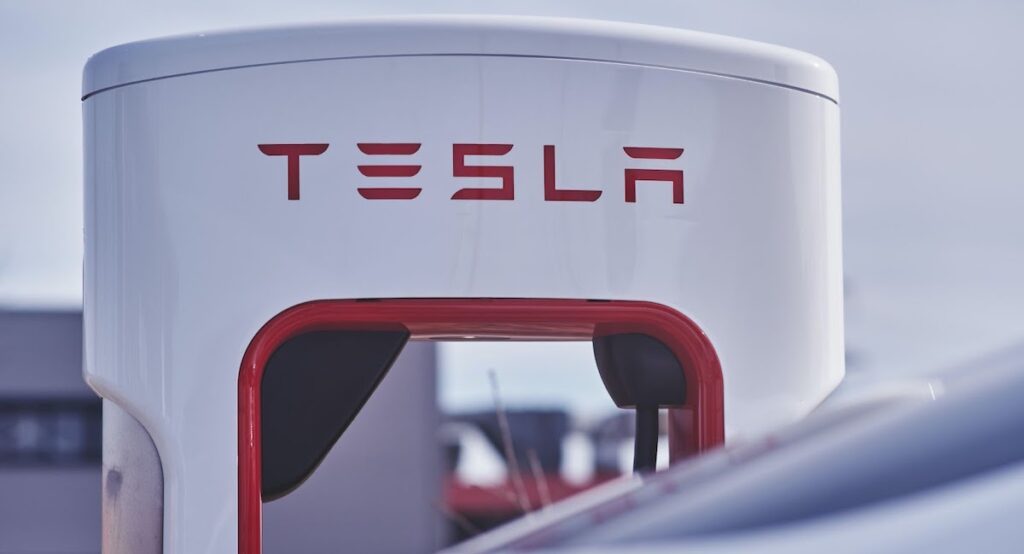
While there is a pilot program allowing any EV to charge at a Tesla Supercharger, most Tesla Superchargers are still only allowing Tesla vehicles to charge there. The Superchargers are controlled via the Tesla app and therefore don’t require a credit card. Simply log into the app and plug in your Tesla and your charging.
From the Tesla app, you can control the rate (speed) of charge and the percentage of charge you wish to obtain. Busy Superchargers may also limit the charge to 80% during peak charge times.
The cost to charge is determined by the plug-in time and does not adjust if pricing changes during the charging session. Depending on location, some Superchargers offer peak and off-peak rates.
Many Superchargers charge by the kWh (kilowatt-hour). The current average cost is about $.25 per kWh, or about $.10 kWh higher than charging from home. However, it will be even more expensive in areas with higher utility rates, peak rate times, and rapid charging.
Tesla Supercharger Tiers
| Supercharger Tiers | kW | Time (54 kWh) | Cost |
|---|---|---|---|
| Tier 1 | Below 60 kW | 3-Hr +/- | Lowest |
| Tier 2 | 60 kW to 100 kW | 1.5-Hr +/- | Second-Lowest |
| Tier 3 | 100 kW to 180 kW | 70-Min +/- | Second-Highest |
| Tier 4 (V2) | 180 kW to 250 kW | 60-Min +/- | Highest |
In areas without cost/kWh users are billed by the minute. When billing per minute, there are four “Tiers” depending on charge speed. Each tier has a different cost depending on the kW dispensed. The greater the kW the faster the charge… and the faster the charge the higher the cost.
Tesla Superchargers also charge an idle fee between $.50 and $1.00 per minute if you leave your Tesla on the charger past the charge time. So remember this if you’re charging while getting a haircut or nails done.
Final Thoughts
Today may be the beginning of the golden age of electric cars. Low cost of electricity, an abundance of charging options, and more and more affordable EVs to choose from every day.
If you are planning to buy an electric car in the near future you can expect to pay about $800 a year for charging your EV, or probably about one-third of what you paid for gasoline last year. I can get behind that, how about you? Let us know in the comments!


Leave a Reply